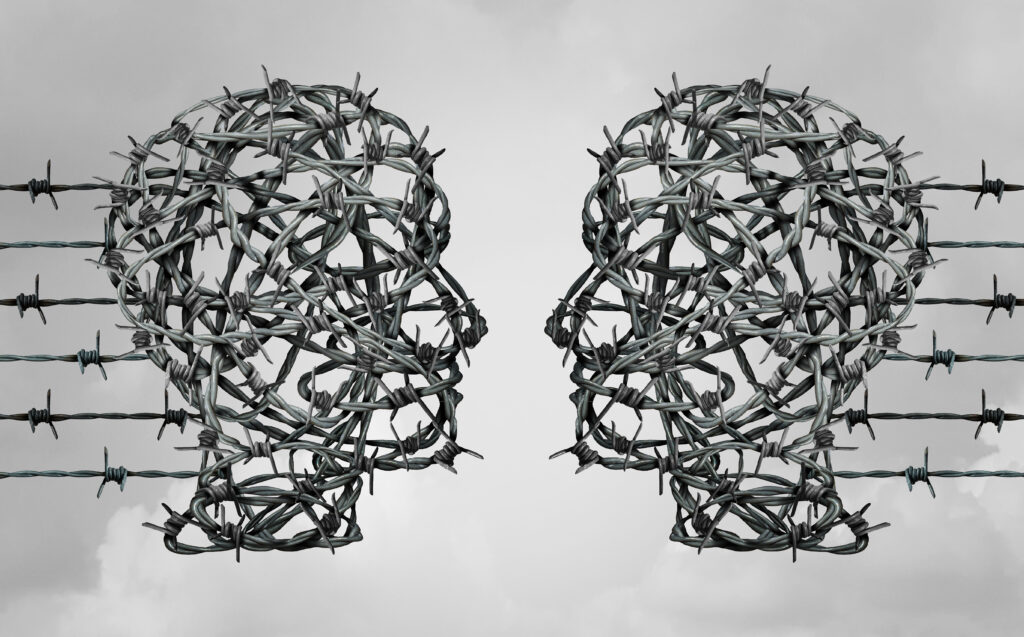CAIR recorded a 28% increase in hate and bias incidents, which reinforced the fact that many local law enforcement agencies drastically underreport, or completely fail to report hate crimes to the FBI’s national database

By Huzaifa Shahbaz
July/August 2022
Anti-Muslim discrimination continues its rise in the U.S. According to the findings of a 2022 civil rights report by the Council on American-Islamic Relations (CAIR), the civil rights and advocacy group documented the highest number of complaints ever recorded in the organization’s 27 years.
The report is titled “Still Suspect: The Impact of Structural Islamophobia.” The word “structural” is significant, for it indicates that this prejudice has seeped into every part of our society — government institutions and the public sphere — through laws and policies, political rhetoric and other manifestations.
In 2021, CAIR received a total of 6,720 complaints nationwide, a 9% increase from 2020. They range from immigration and travel, workplace discrimination, denial of public accommodations and law enforcement and government overreach to hate and bias incidents, incarceree rights, school incidents, anti-BDS/free speech and other issues. These complaints clearly indicate that government discrimination and bias still have a disproportionate effect on Muslim Americans and that Muslim communities continue to be viewed with suspicion.
The report outlines three different areas to illustrate the impact of this severe structural and interpersonal Islamophobia. The first area provides a detailed breakdown of the civil rights complaints CAIR received. The organization detailed 2,823 complaints on immigration and travel-related issues alone, making them the most frequent report received for the second year in a row. The 56% increase in immigration complaints since 2020, CAIR argues, may have resulted from the Afghan immigration crisis during summer 2021 and the increased number of Americans traveling as the pandemic eased.
The second area provides a glimpse of Islamophobia’s impact on our community’s lived experiences. It describes many of the anti-Muslim incidents that happened nationwide, such as mosque vandalism, hate crimes, travel incidents and school bullying. In one disturbing case, a New Jersey high school teacher allegedly told an Arab Muslim student, “We don’t negotiate with terrorists,” when he asked for more time to complete his homework.
In fact, CAIR documented a 28% increase in hate and bias incidents, which reinforced the fact that many local law enforcement agencies are drastically underreporting, or completely failing to report, hate crimes to the FBI’s national database. According to reporting done by Axios, law enforcement agencies around the country are opting not to share statistics about hate crimes with the FBI. In addition, they found that 88% of cities don’t report hate crimes at all.
The third area covers the government’s Terrorist Watchlist and No-Fly List to illustrate the continued suspicion of our community. As detailed in the report, the Terrorist Watchlist stigmatizes hundreds of thousands of people worldwide who have not been charged with or convicted of a crime, including many American citizens, as “known or suspected terrorists” without any semblance of due process. Placement on the watchlist can prevent individuals from traveling by air or sea and subject them to enhanced and invasive screening at airports. An estimated 1.6 million people are currently on this watchlist.
The report closes by offering key recommendations to curb the threat of Islamophobia. One recommendation that could go a far way is for Congress to adopt legislation making federal funding for local law enforcement agencies contingent on them documenting and reporting hate crimes to the FBI’s national database. CAIR argues that this would incentivize local law enforcement to take this threat seriously and could help the public and federal government gain a more comprehensive understanding of the challenges facing Muslim Americans.
Islamophobia is a national emergency that requires urgent attention. Muslim Americans deserve to live in a country where they can freely practice their faith without fear of retaliation or racial profiling. It is the federal government’s responsibility to ensure that all Americans, regardless of their faith, live in a fair, just and safe society.
Huzaifa Shahbaz, who holds a BA in sociology from UC Santa Cruz and a MA in religious studies from the Graduate Theological Union, is a senior researcher and advocate at CAIR.
What did you think about this article? Send comments and story pitches to horizons@isna.net. Islamic Horizons does not publish unsolicited material.